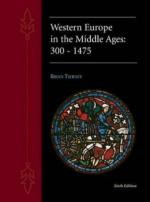|
This section contains 1,638 words (approx. 6 pages at 300 words per page) |

|
War and Reputation.
Throughout the Middle Ages, but especially in the earlier centuries, literary texts composed in poetry and prose and produced in the British Isles, Scandinavia, and throughout Continental Europe reflected both the dominant warrior culture and the emerging ideals of personal reputation and honor. Such literary works typically celebrated the exploits of larger-than-life, hyper-masculine legendary heroes who fought monsters, battled the enemies of Christianity, and often died tragic martyr-like deaths. In heroic tales and in a variation on the genre in French culture, the chansons de geste (songs of deeds), the establishment and maintenance of the hero's reputation (the hero's los or pris in French) was the driving force inspiring the extraordinary feats and physical exploits by which the male protagonists earned their heroic credentials. Such heroes were expected to display a balance of fortitudo (physical courage) and sapientia (discretion and wisdom). The tragic...
|
This section contains 1,638 words (approx. 6 pages at 300 words per page) |

|




